|

Dear
Friend Every
Week we get emails and letters from people enquiring
about
remedies for Memory Enhancement Alzheimer's
, Dementia, and the aging brain,... here
is some info we found, I hope it helps bring hope and allays
some
of the fears
expressed....
Did you see
our last 4 newsletters
Most of us
complain at some time about our poor memories – especially
when we forget things that are important, such as birthdays,
anniversaries and
meetings.
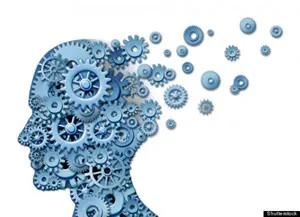 |
Memory
loss probably affects the majority of us in one
way or another. More often than not, it
is a momentary memory lapse; nothing to worry about – it
happens to the best of us. However, when memory lapses
begin to become a regular occurrence, it is wise
to dig a little deeper and seek |
.
"Sorry
to say, our brains naturally start slowing down
at the cruelly young age of 30 (yes, 30).
It used to be thought that this couldn’t
be helped, but a barrage of new studies show that
people of any age can train their brains to be
faster and, in effect, younger. “Your brain
is a learning machine,” says Michael Merzenich,
PhD, a neuroscientist at the University of California,
San Francisco. Given the right tools, we can train
our brains to act like they did when we were younger.
All that’s required is dedicated practice:
exercises for the mind.
" William Speed Weed from Reader's Digest |
" I remember it like it was yesterday!" you
say. But how well do you really remember it? How well
do you remember yesterday? Here's a quick quiz:
What
time did you have lunch yesterday? What exactly did you
eat? What did you say? What did the people around you
say? If you read the paper yesterday, name all the stories
you read and summarize them briefly.
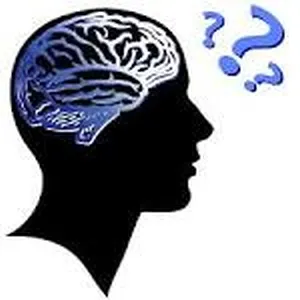 |
Don't
remember yesterday as well as you thought? Don't
worry, nobody does. Our memories are often
thought of as recording devices, mechanically noting
what has happened during the day and replaying
these events like a tape. In truth, memory is a
function of the brain, which is constantly in flux,
organic, and does not behave like a machine. Your
memory can be affected in many ways by many things,
which can cause you to forget, to change memories
around, to repress memories, and even to invent
completely new ones!
|
Eg: Memory can be affected by a number
of factors, some more sinister than others: it may simply
be lack of sleep; fatigue due
to over-work, lack of exercise, or poor
diet; or stress-related. These
are all issue about which we can do something constructive
to help us. However, memory problems can also be the
result of deeper-rooted issues such as brain disease, tumors,
or the onset of a brain cell deteriorating disease such
as Alzheimer’s. Sufferers that
have any doubts at all should always seek medical advice
with regards to continued memory loss
Find Yourself
?
Forgetting
names of people one rarely sees, such as a former
neighbor
•Forgetting parts of an experience,
such as parts of a vacation trip with a friend
•Occasionally misplacing an
item, such as car keys or a cell phone
•Extreme mood changes related
to a relevant or appropriate cause, such as recalling
the death of a spouse
•Temporarily being unable to
recall a specific fact while telling a story or
a past event or experience
•Change and loss of interest
in various age-related activities
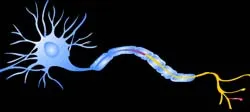
The human brain contains more than
100 billion brain cells called nerve cells or neurons.
All neurons have same basic structure. Many number
of nerves cells together are called nerve. Nerve
is a pale, tough and string like structure and
acts as a living telephone wire.
A neuron is a long cell that has a thick central area containing
the nucleus; it also has one long structure called an axon and
one or more short, bushy structures called dendrites. Dendrites
receive impulses from other neurons. These impulses propagate electrically
along the cell membrane to the end of the axon. At the tip of the
axon the signal is chemically transmitted to an adjacent neuron
or muscle cell. |
The Brain Listen
to the Series
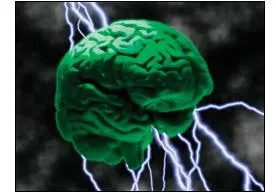 |
BRAIN
CELL GROWTH AFFECTED BY STRESS
For years, neurobiologists clung to a fundamental truth: as animals and people
reach adulthood, they lose brain cells and they never grow new ones. There were
a couple of exceptions such as birds and rats, but the thought was that these
were peculiarities of nature and not evidence of a general principle. |
Now, in experiments that experts call amazing, that dogma has been overturned
because scientists have found that monkeys are constantly making new
brain cells in the hippocampus, an area of the brain used for forming
long-term memories. Moreover, they report, the production of new cells
is squelched when the animals are under extreme stress.
Experts
say they fully expect that humans are no different
and that they, too, make new brain cells
in adult life. That raises the glimmer of a possibility
of eventually treating degenerative disorders like
Alzheimer's or Parkinson's disease and injuries such
as those resulting from stroke or trauma — by
prompting the brain to grow replacement cells.>>>Source |
|
Your
never to old to Grow New Brain Cells Read
on >>> more
Most don't understand how great Cranial Electrical Stimulation
is!!!
The external addition of
microcurrent will increase the production of
ATP, protein synthesis, oxygenation, ion exchange,
absorption of nutrients, elimination of waste
products, and neutralizes the oscillating polarity
of deficient cells. Homeostasis is restored.By
normalizing cell activity, inflammation is reduced
while collagen producing cells are increased.
Healthy cell metabolism creates a healthy, pain
free internal environment. |
Cranial Electrotherapy Stimulation (CES)
is non-invasive alternative therapy that involves passing
very small electrical impulses (micro-currents) across
the base of the skull. This is done by placing electrodes
or clips on or near both ears. Cranial Electrotherapy
Stimulation alters the electrical activity of the brain
and is being considered a safer alternative to drug treatments
for conditions such as insomnia, depression, memory loss Alzheimer's
or Dementia,drug addiction, headaches
and even ADHD.
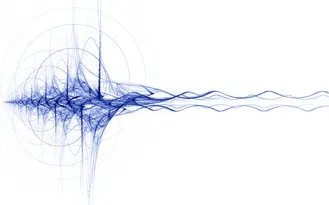 |
Its
tiny “microcurrents” are
thought to stimulate the areas of the brain responsible
for neurotransmitter and hormone production. Clinical
tests back this up. Increases in cerebrospinal
fluid level beta-endorphins up to 219%, plasma
beta-endorphins
up to 98%, and cerebrospinal fluid serotonin up
to 200% have been demonstrated in normal volunteers
receiving just 20 minutes of CES treatment. In
addition,
many patients report a feeling of slight to moderate
euphoria after use |
How
often have you asked yourself the question:
" Why can't I remember everything I read?"
The problem with poor memory is not confined to reading.
It is more generalized in that we also have difficulty
remembering: names of people dates and times telephone
numbers codes, passwords
events and occasions business facts and figures jokes etc, etc.
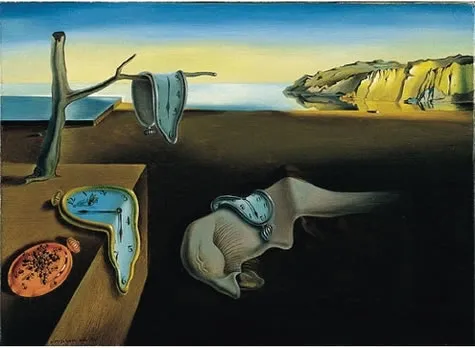
It is not ONLY remembering what you have
now read, but remembering what you read yesterday, last
week, a month ago, a year ago, and so on.
The problem is not
because you are running out of brain storage space. Even when we reach old age,
we still have plenty of unused brain capacity available.
The problem
is not TIME. Information simply cannot "leak" out of our ears over time. Why
can we remember vivid details of childhood yet the details
of last week's newspaper are vague? We remember perfect
details of scenes that only happened once, yet information
drummed into the brain just simply will not "stick".
Robert O. Becker, M.D., reports
that naturally occurring electric currents are
measurable in the body, which send electrical
signals through the Schwann and glial cell sheaths
surrounding neurons to an area of injury. This
process triggers the repair and regeneration
process. he found that the human body is normally
polarized positively along the central spinal
axis and negatively peripherally. |
Delivering
tiny electrical currents to the brain could help
women with breast cancer head off side effects from chemotherapy.
So, what Perhaps is the cause of
the memory problem?
Every computer's hard drive is organized.
The aim of loading information onto the hard drive is
not to leave it there, untouched and inaccessible, but
to use it. Much thought was put into how the information
will be filed away so that when it is needed it can be
accessed quickly and easily. Your computer has a filing
system to access all information placed in any possible
location.
The key to enhancing human
memory is very similar to the thinking behind a
hard drive's storage and retrieval system. To now,
you have been uploading your information to your brain
without an organized system. Getting the information
in is no problem; it’s the retrieval process
that needs polishing.
Frequently
Asked Questions about
Cranial Electrotherapy Stimulation (CES)
Would you like
 Ability
to Focus Ability
to Focus
 Deep Relaxation Deep Relaxation
 Enhanced Creativity Enhanced Creativity
 Centering and Calmness Centering and Calmness
 Reduced Nervous Energy Reduced Nervous Energy
 Deeper, more Restful Sleep Deeper, more Restful Sleep
|
 Better Sexual Performance Better Sexual Performance
 Improved Mental Abilities Improved Mental Abilities
 Short Term Memory Improvement Short Term Memory Improvement
 Increased Mental and Physical Energy Increased Mental and Physical Energy
 Reduced Negative Behavior Patterns Reduced Negative Behavior Patterns
 Heightened Alpha Brainwave Patterns Heightened Alpha Brainwave Patterns
 Improved Attention Span and Concentration Improved Attention Span and Concentration
|
Everything
you wanted to know about CES..
Cranial electro Stimulation
21st Century Medicine & Learning
This response submitted by Ronald B. Keys, JD, PhD on 10/14/99.
.Slow
learners and, or, those with impaired nervous
system development may have their brains and
nervous system jump started. Little did we know
back in the 1950s when the movie, Forbidden Planet,
with Leslie Nielson, Ann Francis and Walter Pidgeon,
that the Krell technology to stimulate brain
growth, with a form of cranial electrical stimulation,
might be in use in the 21st century. currents.
21st
Century Medicine & Learning
This response submitted by Ronald B. Keys, JD, PhD on 10/14/99
|
|
"After
just five days of non-invasive brain stimulation
and a bit of cognitive training, researchers at Oxford
University were able to enhance people's high-level
abilities, such as mental arithmetic and manual calculations.
And remarkably,
the effect lasts for months.
The
discovery was made by scientists working at Oxford's
Department of Experimental Psychology,
and
it could lead to entirely new education strategies.
But more immediately, it could also help people with
learning disabilities or neurodegenerative disorders
like Alzheimer’s or Parkinson’s. We contacted
the lead researcher to learn more." |
Cranial electrical stimulation (CES) may improve memory,
attention and focus; important studies are emerging on
the uses of mild electrical current to enhance cognition
and aspects of intelligence.
For those of you that still
think this is voodoo medicine, do a google search
for electroporation, electropharmacology and
cell biomembrane transport. Also do a PUB MED
search for Saul Liss, PhD, to pull up actual
abstracts. |
What
are Endorphins
At
present, there are over 125 research studies on CES in
humans and 29 experimental animal studies.
The overwhelming majority of the scientific research
is extremely positive. No significant lasting side effects
have been reported. Harvard University School of Public
Health, Department of Health Policy and Management found: "The
meta-analysis of anxiety showed CES to be significantly
more effective than sham (P<.05)
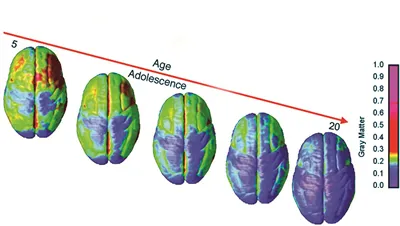
Video
library
Assorted
Scientific/medical Results
Cranial
electro stimulation (CES) in patients with probable
Alzheimer's or Dementia .
Effects of Low-Frequency Cranial Electro
stimulation on the Rest-Activity Rhythm and Salivary
Cortisol in Alzheimer's Disease
Erik Scherder , Dirk Knol , Eus van Someren ,Jan-Berend Deijen ,Rob Binnekade,Fred
Tilders ,Joseph Sergeant
Objective. In previous studies, cranial
electro stimulation (CES) had positive effects on sleep
in depressed patients and in patients with vascular dementia.
The present study examined the effects of low-frequency
CES on the rest-activity rhythm and cortisol levels of
patients with probable Alzheimer's disease (AD). Method.
It was hypothesised that a decreased level of cortisol
would parallel a positive effect of low-frequency CES
on nocturnal restlessness. Sixteen AD patients were randomly
assigned to an experimental group (n = 8) or a control
group (n = 8). The experimental group was treated with
CES, whereas the control group received sham stimulation,
for 30 minutes a day, during 6 weeks. The rest-activity
rhythm was assessed by actigraphy. Cortisol was measured
repeatedly in the saliva throughout the day by means
of salivette tubes. Results. Low-frequency CES did not
improve the rest-activity rhythm in AD patients. Moreover,
both groups showed an increase instead of a decrease
in the level of cortisol. Conclusions: These preliminary
results suggest that low-frequency CES has no positive
effect on the rest-activity rhythm in AD patients. An
alternative research design with high-frequency CES in
AD is discussed.
Department of Clinical Neuropsychology,
Vrije Universiteit, Van der Boechorststraat 1, 1081 BT
Amsterdam, The Netherlands. eja.scherder@psy.vu.nl
Confusion
Headache
Vertigo
Fatigue
Apprehension
Irritability
|
Lack of initiative
Uncooperative behavior
Emotional lability
Depression
Sense of failure
Difficulty adapting to social conditions
|
 In
one study, behavioral disorders of patients with vascular
dementia reacted positively to cranial electrostimulation
(CES). In
one study, behavioral disorders of patients with vascular
dementia reacted positively to cranial electrostimulation
(CES).
Scherder EJ, Deijen JB, Vreeswijk SH, Sergeant JA, Swaab DF
Transcutaneous Electrical Nerve Stimulation
(TENS) for dementia
Michelle H Cameron1, Edmund Lonergan2, Helen Lee3
 Nine
trials were included in the review but only 3 trials could be included
in the meta-analysis. Sufficient data to include the other trials in
the meta-analysis could not be obtained. From this limited analysis it
appears that TENS produced a statistically significant improvement directly
after treatment in: delayed recall of 8 words in one trial, face recognition
in two trials and motivation in one trial. Nine
trials were included in the review but only 3 trials could be included
in the meta-analysis. Sufficient data to include the other trials in
the meta-analysis could not be obtained. From this limited analysis it
appears that TENS produced a statistically significant improvement directly
after treatment in: delayed recall of 8 words in one trial, face recognition
in two trials and motivation in one trial.
 Mild
Cognitive Impairment: TENS Reported Helped:
Transcutaneous electrical nerve stimulation (TENS)
has been applied to patients with either Alzheimer's
disease (AD) or incipient dementia, resulting in an
enhancement in memory and verbal fluency. Moreover,
affective behavior was shown to improve. In a study
of non demented elderly with mild cognitive impairment
living in a residential home, TENS resulted a mild
improvement in self-efficacy and mood, while the placebo
group showed a considerable reduction in self-efficacy
and an increase in depression. Effects of transcutaneous
electrical nerve stimulation (TENS) on self-efficacy
and mood in elderly with mild cognitive impairment.
Luijpen MW, et al. Vrije Universiteit, Amsterdam, the
Netherlands. mw.luijpen@psy.vu.nl. Neurorehabil Neural
Repair 2004 Sep;18(3):166-75. Mild
Cognitive Impairment: TENS Reported Helped:
Transcutaneous electrical nerve stimulation (TENS)
has been applied to patients with either Alzheimer's
disease (AD) or incipient dementia, resulting in an
enhancement in memory and verbal fluency. Moreover,
affective behavior was shown to improve. In a study
of non demented elderly with mild cognitive impairment
living in a residential home, TENS resulted a mild
improvement in self-efficacy and mood, while the placebo
group showed a considerable reduction in self-efficacy
and an increase in depression. Effects of transcutaneous
electrical nerve stimulation (TENS) on self-efficacy
and mood in elderly with mild cognitive impairment.
Luijpen MW, et al. Vrije Universiteit, Amsterdam, the
Netherlands. mw.luijpen@psy.vu.nl. Neurorehabil Neural
Repair 2004 Sep;18(3):166-75.
Trans
cranial Direct Current Stimulation
in Stroke Recovery
 A
total of 54 patients with acute cerebral infarction were
selected from the Department of Neurology, the Second
People's Hospital of Xinxiang from December 2005 to December
2006. There were 31 males and 23 females, and their ages
ranged from 56 to 80 years. All patients met the diagnostic
criteria of the Fourth National Cerebrovascular Academic
Meeting, were finally diagnosed by using CT examination,
and provided the confirmed consent. Based on therapeutic
demands, patients were divided into electric stimulation
group and routine treatment group with 27 cases in each
group. In addition, 21 healthy subjects, including 11
males and 10 females and aging 53–78 years, were
selected as the control group. All the subjects in the
control group did not have any histories of cerebrovascular
diseases and severe body diseases. A
total of 54 patients with acute cerebral infarction were
selected from the Department of Neurology, the Second
People's Hospital of Xinxiang from December 2005 to December
2006. There were 31 males and 23 females, and their ages
ranged from 56 to 80 years. All patients met the diagnostic
criteria of the Fourth National Cerebrovascular Academic
Meeting, were finally diagnosed by using CT examination,
and provided the confirmed consent. Based on therapeutic
demands, patients were divided into electric stimulation
group and routine treatment group with 27 cases in each
group. In addition, 21 healthy subjects, including 11
males and 10 females and aging 53–78 years, were
selected as the control group. All the subjects in the
control group did not have any histories of cerebrovascular
diseases and severe body diseases.
Conclusion
Electric stimulation at cerebellar fastigial nucleus can decrease level
of serum C-reactive protein in patients with acute cerebral infarction,
and this may be one of the therapeutic mechanisms for curing acute cerebral
infarction.
 Childs & Crismon
(1988) reported improvement in immediate and delayed
memory recall in a report of 2 case studies with TBI. Childs & Crismon
(1988) reported improvement in immediate and delayed
memory recall in a report of 2 case studies with TBI.
Sending
tiny electric pulses to a part of the brain controlling
motor function
helps ischemic stroke survivors regain partial
use of a weakened hand, new Oregon Health & Science
University research shows. More |
A stroke can cause sudden memory loss (accompanied
by other neurological symptoms, such as dizziness, visual
changes, buckling knees or slurred speech.) A passing
loss of short-term memory, or ischemic attack, lasts
only a few minutes and can precede a stroke.
 Mild
traumatic brain injury (mTBI) is an acute medical condition
that results from a significant impact to the human skull.
Post-concussion syndrome (PCS) occurs when mTBI symptoms,
such as dysphoria, anxiety, and chronic pain continue
for an extended period. There is much debate over the
causes of PCS with physical attributions (i.e., physiological/neurological
changes) on one side of the continuum and purely psychological
explanations on the other. McCrea (2008) argues that
PCS reflects a psychological state best described as
Undifferentiated Somatization Disorder*. Although his
conclusions are not without debate, if true, this squarely
places the treatment of PCS in the psychological realm.
CES represents one obvious potential treatment as it
has been shown to safely reduce several of the most common
symptoms associated with mTBI/PCS, albeit with different
populations (non-mTBI), and is available for a modest
cost compared to medications. Mild
traumatic brain injury (mTBI) is an acute medical condition
that results from a significant impact to the human skull.
Post-concussion syndrome (PCS) occurs when mTBI symptoms,
such as dysphoria, anxiety, and chronic pain continue
for an extended period. There is much debate over the
causes of PCS with physical attributions (i.e., physiological/neurological
changes) on one side of the continuum and purely psychological
explanations on the other. McCrea (2008) argues that
PCS reflects a psychological state best described as
Undifferentiated Somatization Disorder*. Although his
conclusions are not without debate, if true, this squarely
places the treatment of PCS in the psychological realm.
CES represents one obvious potential treatment as it
has been shown to safely reduce several of the most common
symptoms associated with mTBI/PCS, albeit with different
populations (non-mTBI), and is available for a modest
cost compared to medications.
 Its worth having A CES unit just
for these occasions Its worth having A CES unit just
for these occasions
Anxiety: Cranial Electrotherapy Stimulation: Reported to Help During
Dental Procedures: In a DB PC study of 33 dental patients, the
active CES treatment group was significantly less anxious than
the placebo group at the conclusion of various dental procedures.
CES was used starting 5 minutes before the procedure and continued
during the procedure. Cranial electrotherapy stimulation (CES):
a safe and effective low cost means of anxiety control in a dental
practice. Winick RL. Gen Dent 1999 Jan-Feb;47(1):50-5.
|
We all worry about Alzheimer's disease
from time-to-time, especially if we've had the unfortunate
experience of watching a loved one suffer from it late
in life. Now new research has revealed that a key hallmark
of the encroaching disease, the accumulation of an abnormal
protein in the brain, can start in people as young as
20 years old - younger than scientists ever imagined.
According to the American
Academy of Family Physicians, stress-related
problems account for 80-85% of all visits to
medical offices. Research indicates that 80-85%
of all diseases are caused by stress which plays
a major role in aggravating up to 90% of all
illnesses and some part in the development of
every disease, from cancer to the common cold. |
It
has been estimated that 80% of the populace of
the United States alone
react to life adjustment problems with the "flight" or "fight" anxiety
reaction. And that a similar percentage of our
hospitals are filled with persons who have channeled
anxiety
released energies into their bodies resulting in
psychogenic illnesses. |
|
"Over 10,000 medical practitioners in
the US alone made use of electro therapeutic
modalities until publication of the 1910 Flexner
report, which stated that there was no specific
basis for electro medicine (at that time). Dr.
Flexner's report was originally prepared by the
AMA and sponsored by the Carnegie Endowment for
the Advancement of Teaching. Since the Carnegie
family was heavily invested in the young pharmaceutical
industry it is no wonder their report declared
allopathic medicine superior.>>> Source |
Other possible applications of the CES
are menstrual cramping, stiff neck, allergic reactions,
headache, temporal lobe disorders, etc. The bio electrical
approach may be useful to modulate neurotransmitters
in the brain such that they may re balance the immune
system and help with aspects of all depression and anxiety
type symptoms. Patients who first use the cranial electrical
stimulation (CES) device can often experience benefit
in the first 30 minute session. Often a good marker of
its benefits is that it will produce good relaxation
and even improve sleep. For other individuals an appropriate
trial may be concurrent use with amino acids or antidepressants,
which require at least three weeks to reach their full
effect, and sometimes as much as two months to reach
the full benefit.
What's
YOUR brain age?
Take this test to find out and discover how adding a simple CES Device can knock
years off it!!!

How old is your brain?
Cranial
Electrotherapy Stimulation (CES): CES is "the application of
low-level, pulsed electrical currents usually not
exceeding 1 milliampere) applied to the head for
medical and/or psychological purposes .... CES leaves
the user alert while inducing a relaxed state." According
to the authors, most of these devices are limited
to about 11,000 times less power than the 60 watt
light bulb.... "The significance of
CES research for treating anxiety has been reconfirmed through
meta-analysis conducted at the University of Tulsa...[and
at] the Department of Health Policy and Management,
Harvard School of Public Health.... In addition to
primary claims for anxiety, depression and insomnia...favorable
results have also been reported for labor, epilepsy,
glossalgia, hypertension, surgery, spinal cord injuries,
chronic pain, arthritis, cerebral atherosclerosis,
eczema, dental pain, asthma, ischemic heart disease,
stroke, motion sickness, digestive disorders as well
as various addictive disorders including cocaine,
marijuana, heroin and alcohol abuse." Robert
O. Becker, MD, author of The
Body Electric |
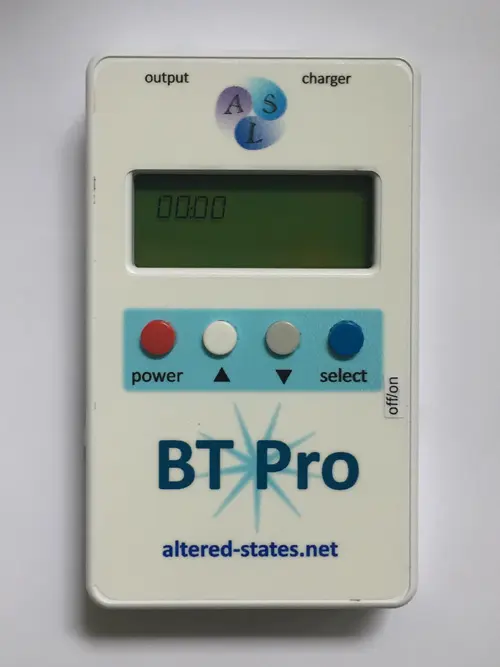 |
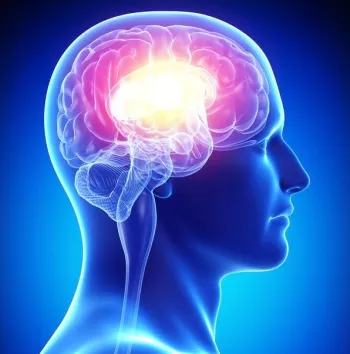
There is a synergistic relationship between nutrients
and CES. Think of the brain as a car battery, some cells
of which may not be fully functioning. To achieve that
end one needs both water and the trickle charge--This
is analogous to the brain, amino acids and the CES. The
brain uses amino acids as the raw materials, the building
blocks or precursors with which to build its neurotransmitters.
It is necessary for these amino acids to be present in
the bloodstream in adequate amounts for the maximum impact/benefit
of CES to be realized. These precursors, if present will
be taken up and synthesized into neurohormones much more
effectively when CES is added. These neurotransmitter
precursor amino acids can be taken orally as food supplements.
To experience an even more dramatic impact of CES, it
should be done in conjunction with amino acid supplements
10
Health Reasons to use CES
ENHANCE YOUR BRAINS PERFORMANCE
BT
Plus
Its An Alpha theta Stim and a BT11 all in
one
5 Built in frequencies
 0.5
Hz 0.5
Hz
 1.5
Hz 1.5
Hz
 5.0
Hz 5.0
Hz
 7.83
Hz 7.83
Hz
 10
Hz 10
Hz
 100.00
Hz 100.00
Hz
 Plus
the Full BT6-BT11 Beck Protocol Plus
the Full BT6-BT11 Beck Protocol
 1000.00
Hz + 111.00 Hz 1000.00
Hz + 111.00 Hz
 Fully
Rechargeable Batteries Fully
Rechargeable Batteries
 Timer
: 0 - 60 mins Timer
: 0 - 60 mins
 Intensity
Control Intensity
Control
 Very
portable Very
portable
 High
Quality Ear clips High
Quality Ear clips
|
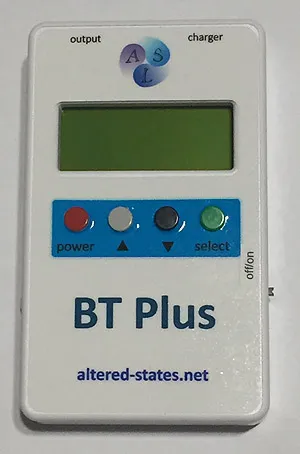
BT
Plus
RRP $NZ299.95
|
|
BTPro
All in ONE Advanced CES System
 |
BTPro
RRP $NZ499.95 approx $US399.00
More
Info
|
|
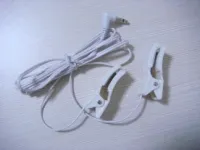 |
Extra
High Quality Ear clips
|
|
Extra
TENS Pads
4 Tens
pads and lead
All the BT units can be used
as a TENS
TENS
Tips
|
Comparison
Chart
Unit
+ Link |
|
|
|
 Connection Connection |
Ear Clips |
Ear Clips |
Ear Clips |
 Timer Timer |
|
|
|
 Manual
Timer Manual
Timer |
|
|
|
 Intensity
control Intensity
control |
|
|
|
 Rechargable
Batterie Rechargable
Batteries |
|
|
|
 Light
and Sound Compatible Light
and Sound Compatible |
|
|
|
Frequencies |
|
|
|
 111Hz 111Hz |
|
|
|
 1000
Hz 1000
Hz |
|
|
|
 0.5Hz 0.5Hz |
|
|
|
 1.5Hz 1.5Hz |
|
|
|
 5.0Hz 5.0Hz |
|
|
|
 7.83Hz 7.83Hz |
|
|
|
 10.Hz 10.Hz |
|
|
|
 100.Hz 100.Hz |
|
|
|
 Harmonics Harmonics |
|
|
|
Options |
|
|
|
AV |
|
|
|
TENs |
|
|
|
Magnastim |
|
|
|
CS
Generator |
|
|
|
Chackra
Balance |
|
|
|
Bob
Beck Zapper |
|
|
|
Hulda
clark Zapper |
|
|
|
Colloidal
Silver |
|
|
|
Sacred
harmony |
|
|
|
Chakra
balancer |
|
|
|
SleepMate |
|
|
|
|
|
Rife machines and Multiwave oscillators are claimed
to complement each other based on the principle that
life forms absorb energy. A multiwave Oscillator uses
this principle to strengthen cells within the body to
resist disease while a Rife machine uses this principle
to destroy microorganisms with an overdose of frequency
energy. |

